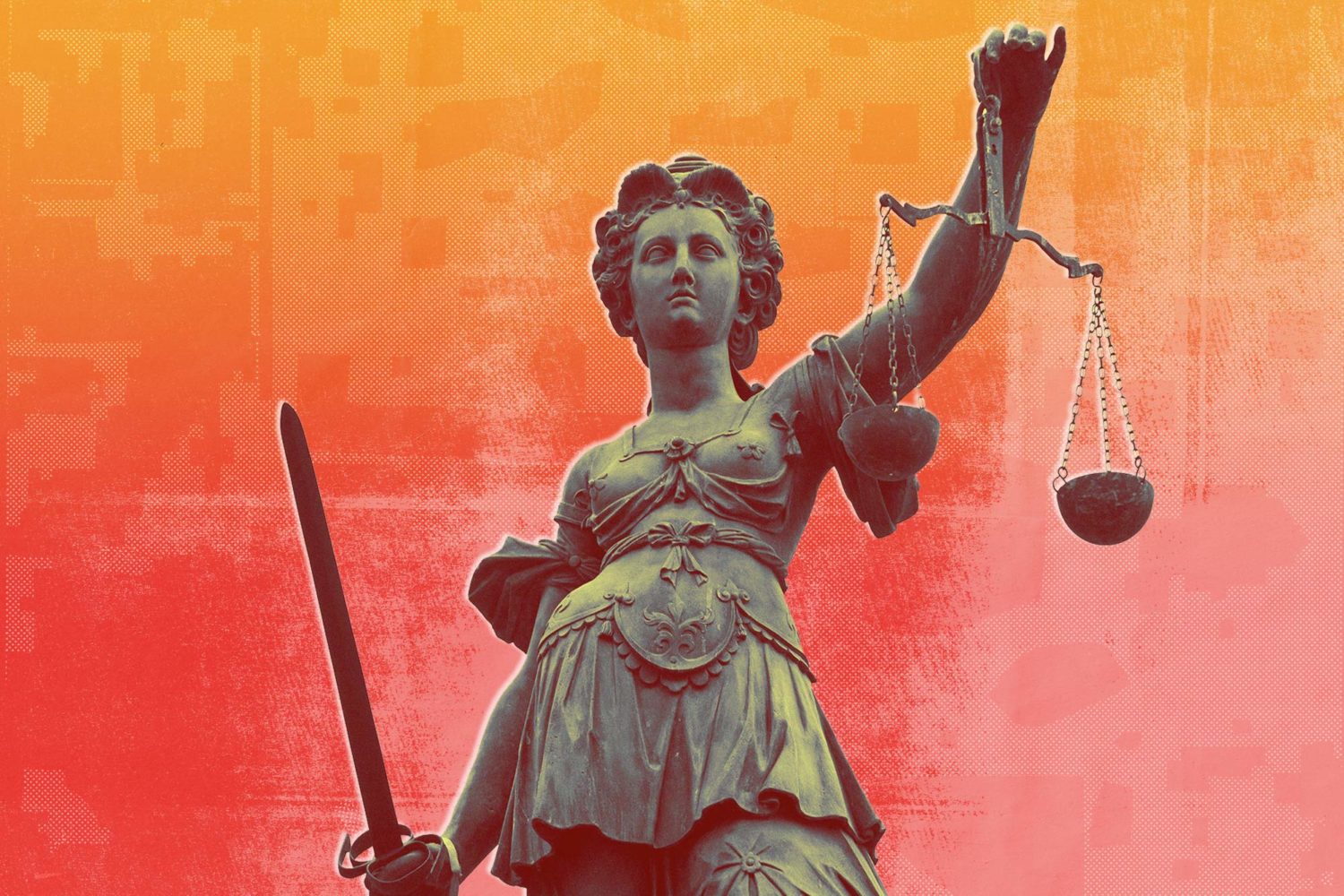Balancing The Scales of Justice
The cost of underfunded indigent defense is borne by defendants whose lawyers may spend as little as a few minutes on a case.

An adversarial system of justice presumes two equal sides, yet our criminal courts largely feature the most unequal of fights. A new report by the Brennan Center for Justice looks at how inadequate funding for indigent defense makes it impossible for defense attorneys to adequately represent their clients. It opens by quoting the Supreme Court’s words, that a “very premise of our adversary system of criminal justice is that partisan advocacy on both sides of a case will best promote the ultimate objective that the guilty be convicted and the innocent go free.”
Anyone with even a glancing familiarity with the workings of the criminal legal system knows there is a vast power and resource imbalance built into it. Harsh sentencing laws, enormous prosecutorial discretion, and a judicial tolerance for prosecutorial misconduct, among other factors, have created a legal landscape that is hostile to the rights and the liberty of all but the most well-resourced defendants. The result is a system where the guarantee of a right to trial by a jury of one’s peers has instead given way to the “vanishing trial”—a system where less than 3 percent of state and federal cases face the scrutiny of a trial.
The resource disparity is reflected in massive caseloads for defense attorneys, who in many jurisdictions can average only minutes on each client they represent, and inadequate funding for investigation, and social work and other services. The overwhelming majority of people who are arrested and prosecuted in this country are poor people, entitled to free representation. In Gideon v. Wainwright, the Supreme Court recognized the constitutional right to state-funded representation for those unable to afford it, but that right has never been fully delivered on.
The Brennan Center’s report examines the many shortcomings of the systems of indigent defense that exist across the country and the ways in which chronic underfunding guts the right to a lawyer.
The consequences are life-changing and life-threatening. In New Orleans, where post-Hurricane Katrina funding enabled the creation of a public defenders office, a complete failure on the part of officials to guarantee sufficient funding has meant that attorneys carry caseloads several times higher than the recommended caps—which are themselves far higher than they should be, as the report points out. In one case, Landon Quinn was convicted of felony murder and sentenced to life in prison while evidence that would have impeached the testimony of the single eyewitness—and primary piece of evidence against him—lay in his attorneys’ case file the entire trial. At the time, as Radley Balko wrote in the Washington Post last month, one of his attorneys was handling 711 other felony cases and the other was handling 543 others.
Not much has changed in New Orleans. Despite repeated media attention to the public defender office’s inability to represent clients, the state has cut funding rather than increase it.
But in other jurisdictions there have been some hopeful signs. This includes places where public defenders and prosecutors have found common ground on the need for higher pay and lower caseloads. In New York City, for example, public defenders and district attorney offices joined forces to demand pay parity with attorneys directly employed by the city.
Representatives of all the major public defender offices in the city testified at a public hearing about the harms caused by underfunding of public defense. These have consequences for individual attorneys and for the quality of public defender offices. Low pay means that attorneys from the communities most affected by policing, prosecutions, and imprisonment are least able to enter into, and remain in, public defender offices. It affects the longevity of public defense careers, forcing attorneys to choose between, for example, continuing with their careers or being able to afford having children. It leads to many attorneys, as documented in the New York Times in June, finding second jobs to supplement their income. Underfunding also means inadequate pay for non-lawyer employees of public defender officers, including social workers, investigators, and administrative staff, whose work and commitment is essential to quality client representation.
One defender highlighted that these are, ultimately, political calculations on the part of policymakers. In his testimony, as reported by RJ Vogt of Law 360, Akin Akinjiola argued that the failure to adequately fund public defense is a reflection of the value the city places on the right to a lawyer. Akinjiola said: “Why do you think our work as attorneys deserves less? I’ve been racking my brain to figure out how you would justify the disparity, and the only conclusion I can come to is that you don’t value our clients and their constitutional rights to a defense.”
Pay parity for public defenders cannot on its own yield a just legal system. But it can be one of the elements of a system better equipped to test the stories, resist the abuses, and substantially downgrade the power of law enforcement. And better funding for indigent defense is a popular idea. The Brennan Center report points out that “71 percent of voters think it is important to reduce the prison population and 66 percent support the use of government tax dollars to provide indigent defense.” The platforms of Democratic presidential candidates like Senators Bernie Sanders and Elizabeth Warren both include increased funding for public defense. Even Senator Kamala Harris of California, a candidate whose record as a prosecutor has drawn sustained scrutiny and fierce criticism, has introduced a bill to guarantee increased federal funding for indigent defense.
